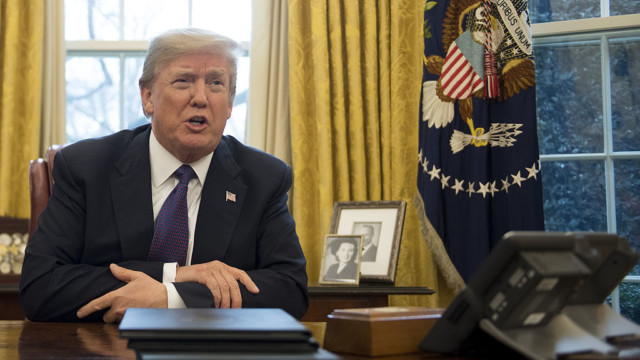China is expressing “strong dissatisfaction” over the U.S. decision to impose tariffs on the imported solar panels and washing machines. It’s a global tariff, but it will affect China the most due to its current market share. South Korea will also be hit hard by the new tariffs on washing machines.
CGTN’s Nathan King reports from the White House.
For U.S. President Donald Trump the new import tariffs are about making America great again. They’re supposed to protect domestic manufacturers and workers against foreign competition.
“There won’t be a trade war by the way. There will only be stock increases for the companies that are in this country. If you look at solar, and if you look at the washing machine companies, that’s really what happened today,” said U.S. President Donald Trump. “You’re going to have people getting jobs again and we’re going to make our own product again. It’s been a long time.”
The tariffs imposed may have the opposite effect. A 30 percent tariff in the first year on solar panels and modules could cost as many as 23,000 U.S. jobs, according to the American Solar Energy Industry Association.
Responding to the tariffs, China said the problem is with the U.S., and warns these actions could escalate.
“The U.S. has repeatedly instituted trade-restricting measures to the same type of product. It is over protection of its domestic industry and abuse of the trade restrictions,” Wang Hejun from China’s Ministry of Commerce said. “We do not want to see a trade war between China and the U.S. It will negatively affect not only the economy of two countries, but also the global economy.”
It’s not just solar panels and washing machines. The Trump administration is considering penalties on steel and aluminum imports. They’re also looking to take action over intellectual property.
As the White House signed these tariffs into law, 11 countries from the Pacific Rim agreed to a sign the Trans Pacific Partnership. It’s a free trade deal that was led by the United States until Washington pulled out last year. With more protectionist trade decisions potentially on the horizon – it seems when it comes to trade – the U.S. is headed in an opposite direction from the rest of the world.
 CGTN America
CGTN America
 US President Donald Trump speaks after signing Section 201 actions to impose tariffs from the Oval Office of the White House in Washington, DC, on January 23, 2018. / AFP PHOTO / JIM WATSON
US President Donald Trump speaks after signing Section 201 actions to impose tariffs from the Oval Office of the White House in Washington, DC, on January 23, 2018. / AFP PHOTO / JIM WATSON
